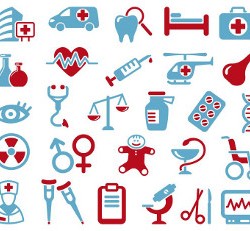The big D word that scares most first-time* expectant mothers – Delivery.

You’ve carried that growing bundle of cells inside you for the whole nine months, suffered the accompanying aches, pains and nausea, waddled up and down the buses and trains, and sacrificed your skyscraper heels for comfy flats, all for this day, this moment. The arrival of your bundle of joy into this world.
There can be no way of knowing with certainty the date your child will be born, even with all the technology, ultrasound scans and those dreaded vaginal examinations. Sure, your gynae will do her utmost best to predict a date, but it’s really only all systems go when baby decides it’s showtime!
Still, that doesn’t mean you can’t prepare for it as much as possible. After all, as a wise saying goes: “Planning is the key to success” – and we couldn’t agree more. While plans may change, and unforeseen circumstances can crop up, it’s good to have handles on what to expect. It’s also helpful to think through your options now, when you’re calm and composed, not when you’re screaming bloody murder or slumped in a sedated stupor.
Besides, as much as it might sound impossible right now, firming up some of your decisions now will free you up to enjoy the whole delivery process. Sure, there will be pain, and difficult moments to endure. But still, this is about that moment, your unique experience of bringing your precious baby into the world, and you want to be able to be fully present and lucid to remember the once-in-a-lifetime event.

We give you some points to ponder as you await that special day.
1. Draft a Birth Plan
There are so many decisions involved in the delivery process, and a birth plan is a great way to help you track with you and your partner’s preferences, share that information with your gynae, and keep everyone accountable to it. Still, do remember that this is better conceived of as a wish list, as it’s almost inevitable that your ideal scenario rarely pans out perfectly.
What it provides is a written note of understanding between you and your gynae/hospital, about the kind of birth experience you hope to have. The typical birth plan includes basic details like when to check into hospital, what kind of pain relief you may take, delivery positions, consent for an episiotomy, the presence of significant others during labour, immediate breastfeeding for your newborn, having your spouse cut the umbilical cord and cord blood banking.
A well-thought through plan can help you enjoy a better birth experience, as well as minimize unrealistic expectations, conflict and miscommunication between all parties involved in the delivery process, and even post-partum.

2. Pack your bags
Don’t leave this till the last minute. Get your hospital bags for delivery packed by the time you hit 36 weeks, because you don’t want to be caught unprepared if baby decides to make an early appearance!
Remember that it’s not just about bringing the clothes and toiletries you need. You’ll also want to pack things like your iPod or a magazine in case labour takes a while. And don’t forget to include hubby’s toiletries and clothes, if he is planning to stay in with you.
If you already have a child or two, make arrangements for their care during your time in the hospital, eg. with your parents or in-laws, and remember to pack a bag for them as well.
3. Create a check list
Pregnancy is known to make the sharpest of us a bit fuzzy on details. Blame it on the hormones! Creating a list (or more) will help you get a grip on reality and give you peace of mind as you dutifully check things off.
You can list out things around the house that need to be locked up or switched off before you run off to the hospital. You can list the items you intend to pack into your hospital bags, including the documents needed for checking into the hospital and registering the baby’s name once he arrives. You can make a list for your hubby about things he needs to look into once baby arrives, eg. call the grandparents, inform the confinement nanny, put clean bedsheets in the cot etc.
4. Decide how you want to document the experience
Some parents start Instagramming every moment – from the first grimace of pain, to the first wail of their newborn – while others choose to keep all forms of social media at bay until baby is safely ensconced in the nursery. There’s no right or wrong, but it would be wise to discuss matters with your husband and inform loved ones and friends beforehand so that no one infringes on your privacy unknowingly.
And should you want to capture photos or videos of the little one’s birth, be sure to check with your hospital if cameras are allowed in the delivery suite, as not all hospitals are okay with that. You can even pack a small notebook and pen in your bag and journal snippets of your thoughts and feelings throughout your time in the hospital, from the moment your waters burst, to how you felt after that first breastfeeding experience – a precious momento for years to come.
Now that you’ve done all of the above, it’s time to let go. What?!
Yes, you heard us right. Plans are important and needful, but so are flexibility and a clear mind. And you can’t have either if you’re clinging on to your plans and refusing to consider your current options. As much as your plans can and should make the journey that much more predictable, life rarely happens just the way we planned it. Decide now that you will be okay if plans have to change – in the end, all that really matters is that your little one is born safe and sound.
* Not that second or third timers don’t feel nervous about it; they just have a better sense of what to expect and have too much mental energy depleted caring for their young one(s)!
By Dorothea Chow
If you find this article useful, do click Like and Share at the bottom of the post, thank you.
Like what you read and want more? Receive our latest articles and giveaways when you sign up on our mailing list here.























































